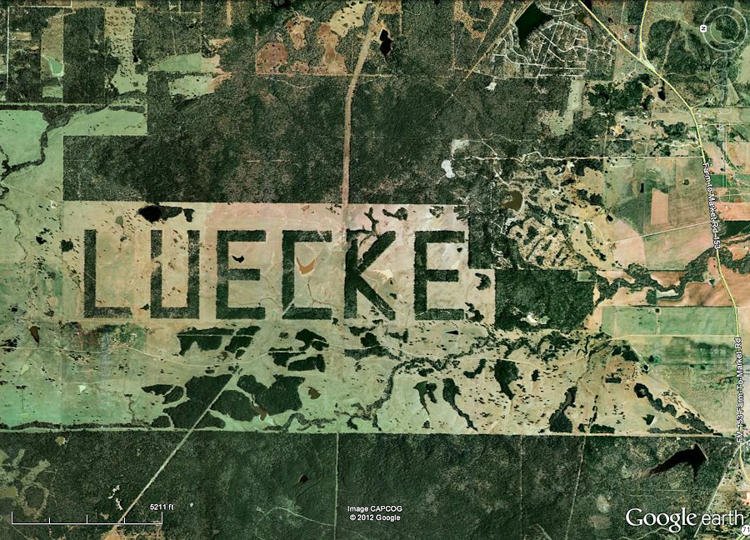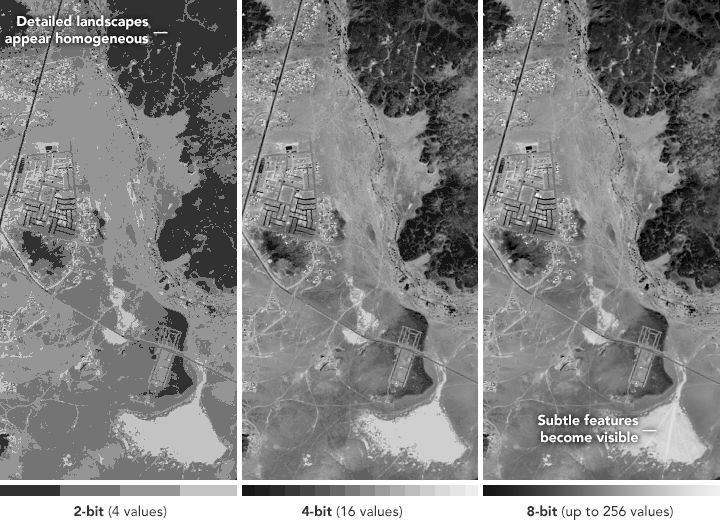
Texas, the biggest of the contiguous US states, prides itself on being larger than life. Everything, from hairstyles to boot heels to food portions to mascots to convenience stores (the largest one boasts 80 soda fountains), is exaggerated. Hence, it should come as no surprise that the Lone Star State is also home to the largest signature on Earth.
The massive "LUECKE," spelled out with over three miles of trees, with each letter stretching thousands of feet in each direction, was created in the 1990s by Texas cattle rancher Jimmie Luecke. The former state trooper, who made his fortune during the 1980s oil boom, came up with the idea when he needed to clear more of his large swath of land outside the town of Smithville, to accommodate his growing herd.
Instead of indiscriminately razing down the forest, Luecke decided to save a few hundred trees to carve out his name. In addition to being an ego boost, the letters helped divide the farmland and protected the soil from eroding. Over the years, the world's largest signature, which can be clearly seen from the skies, has also become a popular landmark for air travelers flying above eastern Texas, from Houston to Austin.

The humongous geoglyph also serves another important, albeit unexpected, purpose. It helps NASA astronauts determine the quality of their satellite cameras. According to a statement released by the US space agency a few years ago, "By clearing forest so that a pattern would be visible to landing aircraft, a landowner outside Austin, Texas created a target that is also useful for evaluating spatial resolution of astronaut photographs."
For those unfamiliar with the term, spatial resolution refers to the detail, or the size of individual pixels, at which a satellite sensor "sees" the Earth. A digital image with a higher spatial resolution comprises more pixels than a lower spatial resolution image with similar dimensions. The measurement helps determine the quality of the image and allows scientists to ascertain how small the object can be for a satellite system to detect it.

Though Luecke was the first to think of this brilliant idea, he was not the only one. In 2005, Hamad Bin Hamdan Al Nahyan, a billionaire in the United Arab Emirates, carved his name in the sand of Al Futaisi island off Abu Dhabi. The two-mile-long signature was made using connected canals that filled up with water during full tide in the Persian Gulf. However, for reasons unknown, the massive billboard was erased in 2012, leaving Luecke's signature the only one of its kind in the world.
Resources: odditycentral.com, atlasobscura.com, Dailymail.co.uk
